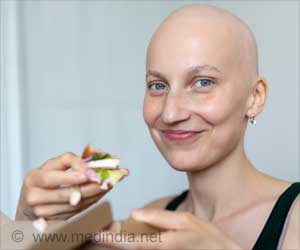, researchers conducted in-depth interviews with young, female cancer survivors with fertility challenges to collect information about their
and help inform the development of dietary interventions for this population.
“Clearly, barriers exist for these young women who are unable to meet healthy dietary recommendations. Yet, to date, no study has investigated nutrition-related barriers to female cancer survivors experiencing fertility challenges, said Brandy-Joe Milliron, Ph.D., an associate professor in the College and corresponding author of the study.
Advertisement
In addition to the in-depth interviews, 20 female cancer survivors of reproductive age gave three 24-hour dietary recalls a self-report of food and beverages they consumed the day before to gauge the quality of their diets based on the Healthy Eating Index (2015) and how closely they adhered to the Dietary Guidelines for Americans.
The researchers followed up with some participants in focus group discussions to ensure the meanings and perspectives of participants were accurate.
Tame your Barriers for a Healthy Life
Overall, women in the study reported a poor-quality diet, with four main barriers to eating a healthy diet emerging from the data:
- Challenges of work-life balance
- Treatment-related fatigue
- Dietary guidance, if provided, was too rigid for them to follow
- Lack of nutrition resources and minimal guidance tailored to their unique needs during treatment and throughout post-treatment life
Despite these barriers, the research team did identify several facilitators to healthy eating, especially among participants with higher quality diets. These included building trust between patients and their health care provider, identifying a high motivation to improve nutrition-related behaviors and recognition of the additional benefits of nutrition and a healthy diet.
They recommend that nutrition programs and interventions for female cancer survivors use evidence-based strategies and tools such as motivational interviewing, self-monitoring, and social support. Customized interventions should accommodate women’s work schedules to improve adherence, and culinary education resources may help improve survivors confidence in cooking, motivation and fatigue management.
“Nutrition interventions that seek to strengthen fertility treatment can be optimized by considering and addressing barriers and facilitators during the development stage”, said Milliron.
Reference :
- Optimizing Fertility Treatment With Nutrition Guidance: Exploring Barriers and Facilitators to Healthful Nutrition Among Female Cancer Survivors With Fertility Challenges – ( https://journals.sagepub.com/doi/10.1177/15347354231191984)
Source: Eurekalert



